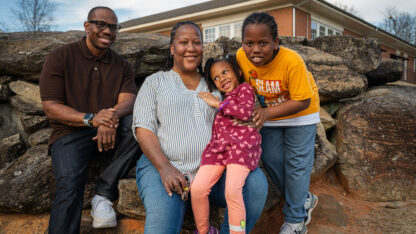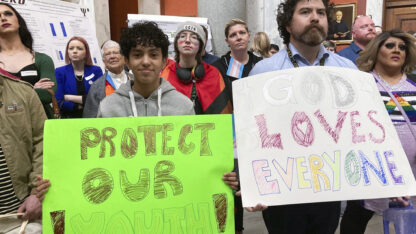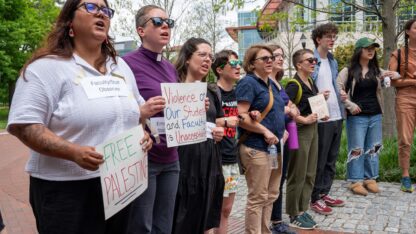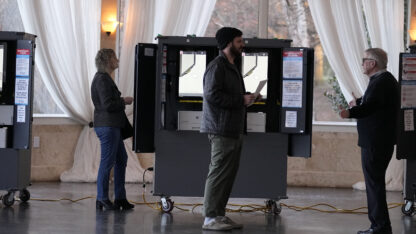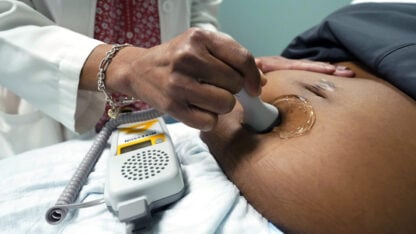This Atlanta Nonprofit Finds Hundreds Of Jobs For The Homeless
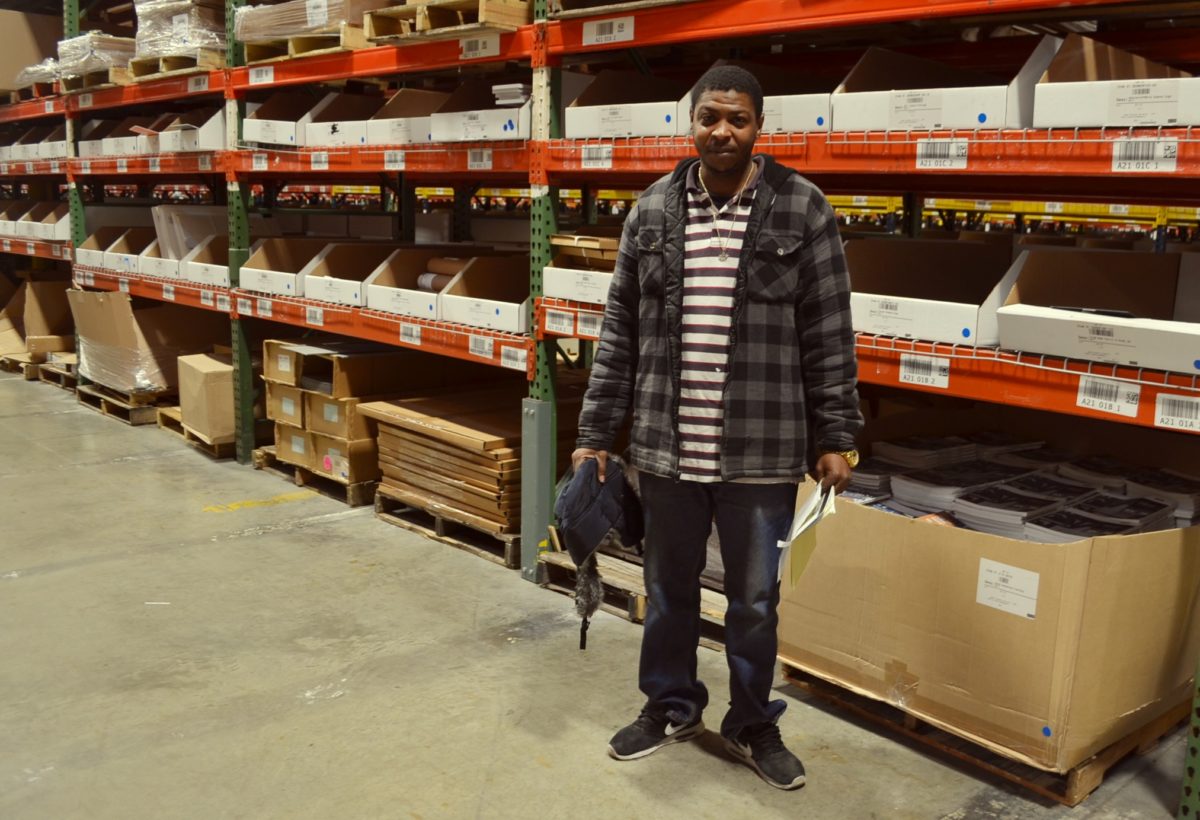
Stephannie Stokes / WABE
Marcuss Ealy walks through a big warehouse, passing aisles filled with various shapes of cardboard boxes.
The warehouse on the westside of unincorporated Fulton County is part of a national printing company, Integrated Merchandising Systems (IMS). Ealy points to workers who are getting orders ready to ship.
“See I started on this aisle way back where that lady at,” Ealy said. “That’s the packer.”
Ealy has since been promoted. He now makes $10 an hour pulling items from warehouse shelves as a picker.
A warehouse job wasn’t a career goal for Ealy, but he’s been grateful to have the work. He was hired at IMS when he was homeless.
He’s one of hundreds of people an Atlanta nonprofit, First Step, connects to work every week.
“I don’t know if anybody in any city is employing as many people who have been homeless as First Step,” said Dave Shaffer, the First Step’s CEO.
First Step operates like a temporary agency, sending workers to companies that need them. The organization also conducts drug tests, provides counseling and even arranges transportation to work.
It hasn’t always been able to find so many jobs for people who’ve been homeless.
Until a year ago, First Step had trouble growing and employed fewer than 100 people a week. Shaffer said that frustrated founder Greg Block.
“Hey, we’re doing this, but we’re not doing it at a big enough scale to really make a significant impact,” Shaffer said. “How can we do this in a way that honestly makes a difference?”
The problem was that not enough companies were signing up to hire the homeless. Shaffer said that’s partly due to stereotypes, and because the staffing industry is very competitive.
That’s when First Step did something unprecedented. It raised more than $7 million through sources like Invest Atlanta and private lenders to buy a for-profit staffing agency, the Atlanta branch of LGS Staffing.
This meant First Step took over all of LGS’s contracts with companies. From then on, First Step started filling positions at those companies with workers who had been homeless.
The result was better than expected, according to Shaffer.
“They had about a hundred customers that they billed in the year. And after year one of us owning that business we really lost virtually no customers and added 12,” Shaffer said. “So we actually grew the business.”
First Step went from earning about $1 million in revenue per year to $19 million–all of which is reinvested into its services.
At the companies First Step inherited in the buyout, some people didn’t notice a change with the new employees.
Rebecca McCloud is a supervisor at IMS, the printing company where Ealy works. She said she didn’t learn who the nonprofit’s workers were for months.
“I didn’t know most of the First Step people were homeless, some in shelters and stuff. I had no idea,” McCloud said. “And I still didn’t know Marcuss was [homeless] until today.”
The higher-ups at IMS were aware the employees had been homeless. Shaffer said companies like IMS are now supportive of First Step’s mission. However, it doesn’t go out of its way to advertise its workers’ backgrounds.
McCloud, the supervisor, said she doesn’t think it’s important.
“They always get here when they’re supposed to,” McCloud said. “I mean, I don’t see much of a difference in the way they work and the way other people work.”
Shaffer knows First Step can’t employ all of the estimated 4,000 people who are homeless in Atlanta.
If someone fails a drug test, that person is sent elsewhere for help. First Step also has a separate arm to serve people with disabilities.
In buying LGS, the staffing agency, Shaffer said he thinks First Step found the best way to reach people who are homeless and ready to work.
Ealy is included in that group. Before First Step, he had trouble finding a job anywhere because he has something on his criminal record–check fraud.
Now, he’s renting a room, and recently he marked his first anniversary at IMS.
“I’ve been talking to [a] guy who been here with me. We always talk about; it’s gonna be a year since we been here, and we do our party dance,” Ealy said. “Oh yeah we’ve been here for a year, man.”
Ealy said he’s thinking about what’s next.
So is First Step. After its success in Atlanta, it’s looking to try out its model in other cities, like Philadelphia and Chicago.
9(MDAxODM0MDY4MDEyMTY4NDA3MzI3YjkzMw004))



